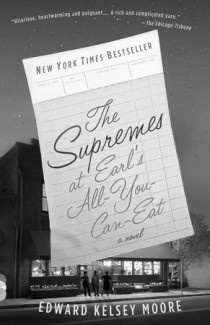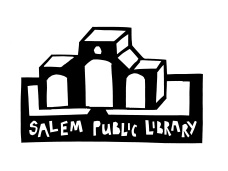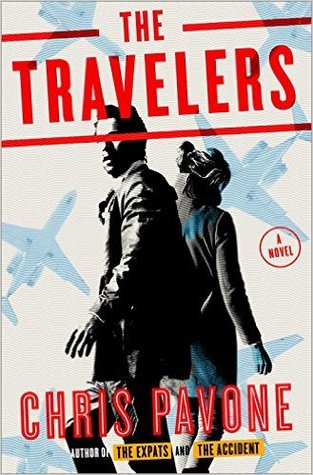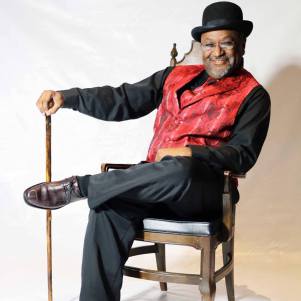 With the joy and risk that come with engaging diverse perspectives, public book groups spark important community conversations while enriching the reading experience. Certainly that was the case for the dozen or so people gathered at the Salem Public Library recently for a well organized review of The Supremes at Earl’s All-You-Can-Eat by Edward Kelsey Moore (Vintage, 2013).
With the joy and risk that come with engaging diverse perspectives, public book groups spark important community conversations while enriching the reading experience. Certainly that was the case for the dozen or so people gathered at the Salem Public Library recently for a well organized review of The Supremes at Earl’s All-You-Can-Eat by Edward Kelsey Moore (Vintage, 2013).
The novel is set in an African-American neighborhood of fictional Plainview, Indiana from the late 1950’s through the early 2000’s. The story confidently weaves across time and perspectives, celebrating the value of enduring friendship in a changing society. This is not revolutionary material in fiction, but it didn’t need to be to spark good conversation. To the contrary, the book’s familiarity put participants at ease and easily connected them to the material and discussion points.
Librarian Cheryl Spence also eases discussion. As host, Spence puts out snacks, provides reader’s guide questions, and set out name tents. Limiting introductory comments and announcements, she opens the hour conversation promptly. And then she hands the conversation over to the group.
 Clearly Spence enjoys discussing books as a member of the group. She let the conversation flow naturally, and like all of the readers, she connected aspects of the novel to her life and to life in our region. Civil rights and race in Indiana translated to urban renewal and segregation in Roanoke, and that’s where the conversation took the group.
Clearly Spence enjoys discussing books as a member of the group. She let the conversation flow naturally, and like all of the readers, she connected aspects of the novel to her life and to life in our region. Civil rights and race in Indiana translated to urban renewal and segregation in Roanoke, and that’s where the conversation took the group.
While the Salem Library Book Group may have looked homogenous, (largely white and female, with many retired members), there was a diversity of experiences and perspectives. Three men participated. The group included both those born in Salem and those who have relocated to the area from northern reaches.
So the risk: you never know what will be said a public discussion. We read about a variety of cultures to better understand them, and to better understand ourselves. We learn together here. And learning is fraught with those moments in which we have to step back and review. We don’t all have the same starting point, and we can help each other by sharing insights and experiences.
There’s the chance that someone will say something ‘wrong.’ They won’t put it as sensitively as we would prefer. And that’s okay. We can’t not communicate because of the fear of unintentionally hurting each other. It’s our opportunity to work through it, enlightening ourselves on how we can go about life together, better. We can listen to the comment generously, gaining from the speaker’s experience as we hope he or she gains from ours. We can talk with them afterwards, on the side, and go deeper.

The takeaway of reading about a largely black community in a largely white community was what readers know to be true. We read the specific to understand the universal. “This book could have been about any group of friends, just change out some details,” said one participant. By understanding those details, we may better understand our neighbors. And by going deeper and discussing them, we may become better neighbors. We’re fortunate that our public libraries provide this civic forum.
The City of Salem Public Library next hosts a book conversation on Tuesday, June 27, discussing Some Luck by Jane Smiley (Anchor Books, 2015). The book group meets on the last Tuesday of each month at 1PM at 28 East Main Street. ★
Share this:





![This Girl Is Different [Uncorrected Proof]](/i/cover.png)